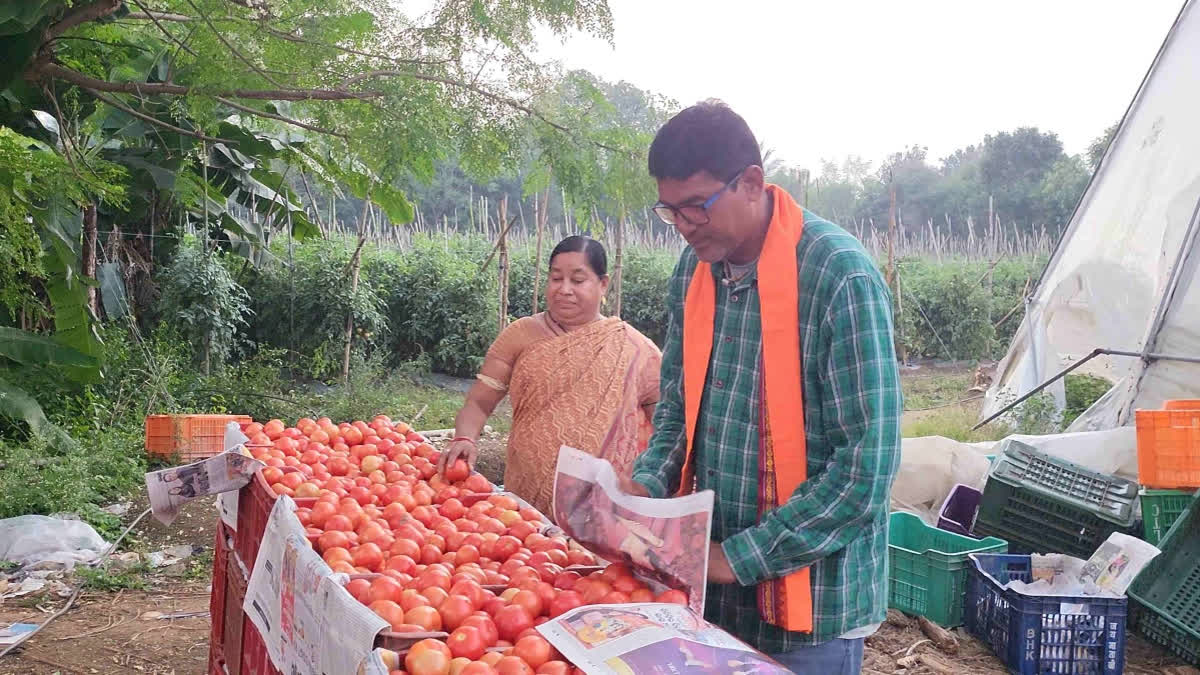Bhawanipatna (Kalahandi) : Golamunda, a region in Kalahandi district of Odisha, once infamous for large-scale migration, has emerged as a model for agricultural success story. Earlier, synonymous with despair, the area is now a flourishing hub of farming innovation, thanks to the efforts of local farmers. Their collective journey from hardship to prosperity has not only earned accolades but also drawn the attention of Prime Minister Narendra Modi, who recently praised their work in his 'Mann Ki Baat' program.
At the heart of this transformation is Krushnachandra Nag, a young farmer from Sanchergaon village. His story began in 1996 when he was working as a driver, earning a meager salary that barely sustained his family. Frustrated by his circumstances, Krushnachandra decided to return to his ancestral land in 2008. Starting with just 25 decimils of land, he ventured into chili farming, earning an impressive Rs 2.5 lakh in his first year. Encouraged by this success, he expanded his operations, diversifying into tomatoes, cauliflower, and other crops.
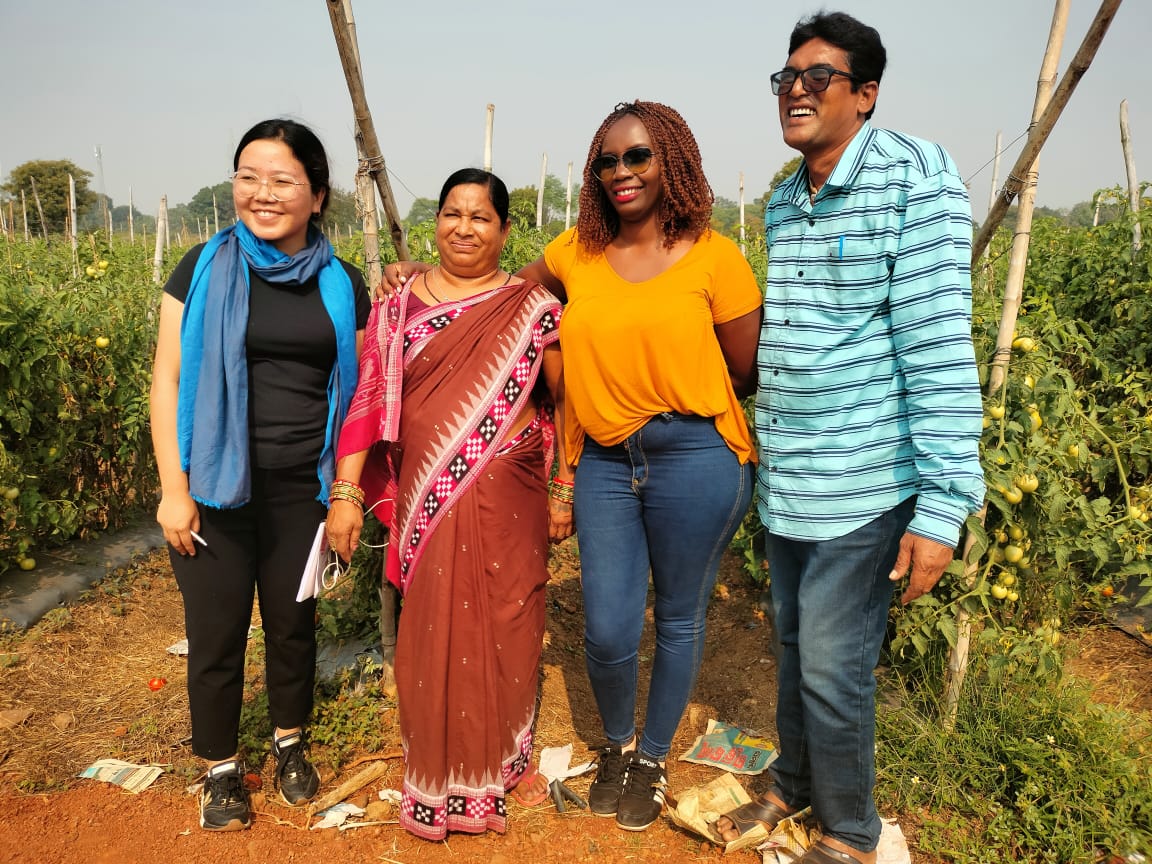
Fast forward to 2023, Krushnachandra now cultivates over 16 acres of land, employing modern farming techniques and organic practices. His efforts have not only turned his farm into a lucrative enterprise—generating Rs 85 lakh in profits last year—but have also uplifted the local community.
Reflecting on his past and how hard work led him to success, he said, "I was working as a driver in 1996 for Rs 2,500 monthly salary. Since it was not enough, I went to Bargarh to work as a laborer, where I toiled for eight hours and got the same Rs 2,500. It was then that I thought that with my ancestral land, I could do the same hard work and probably earn more." He returned and cultivated chillies on 25 decimils of land. "That year I did my first business of Rs 2,50,000. And since then there has been no looking back," he reminisces.
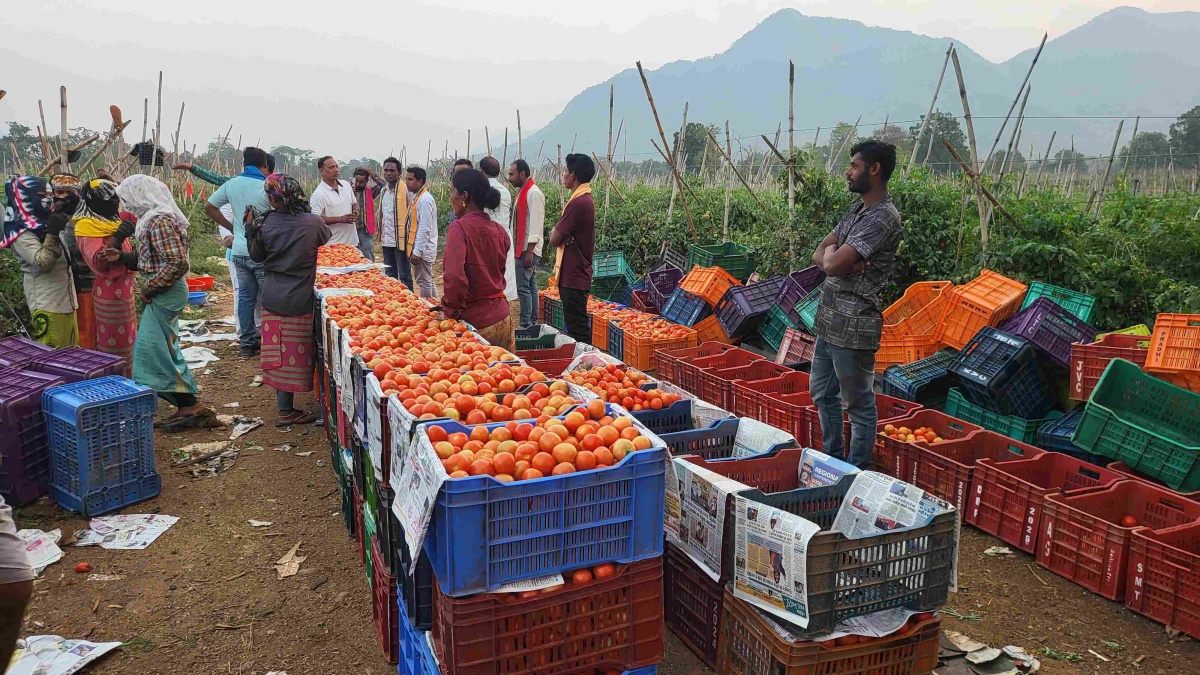
In 17 years, Krushnachandra has 16 acres of land. While he earned Rs 75 lakh in 2022, his turnover in 2023, was Rs 1.42 crore, of which I earned a profit of Rs 85 lakh.
However, Krushna’s vision extended beyond personal success. In 2017, he established the 'Agrahi Chasi Krushi Utpadan Sanghatana,' a Farmer Producer Organization (FPO) that now includes 200 members, including 45 women. Starting with a modest share capital of Rs 1.78 lakh, the FPO’s turnover has soared, reaching Rs 50 lakh in 2023-24 and projected to cross Rs 2 crore by now. For this feat of his, PM Modi appreciated Krushnachandra's effort in the last Mann Ki Baat episode.
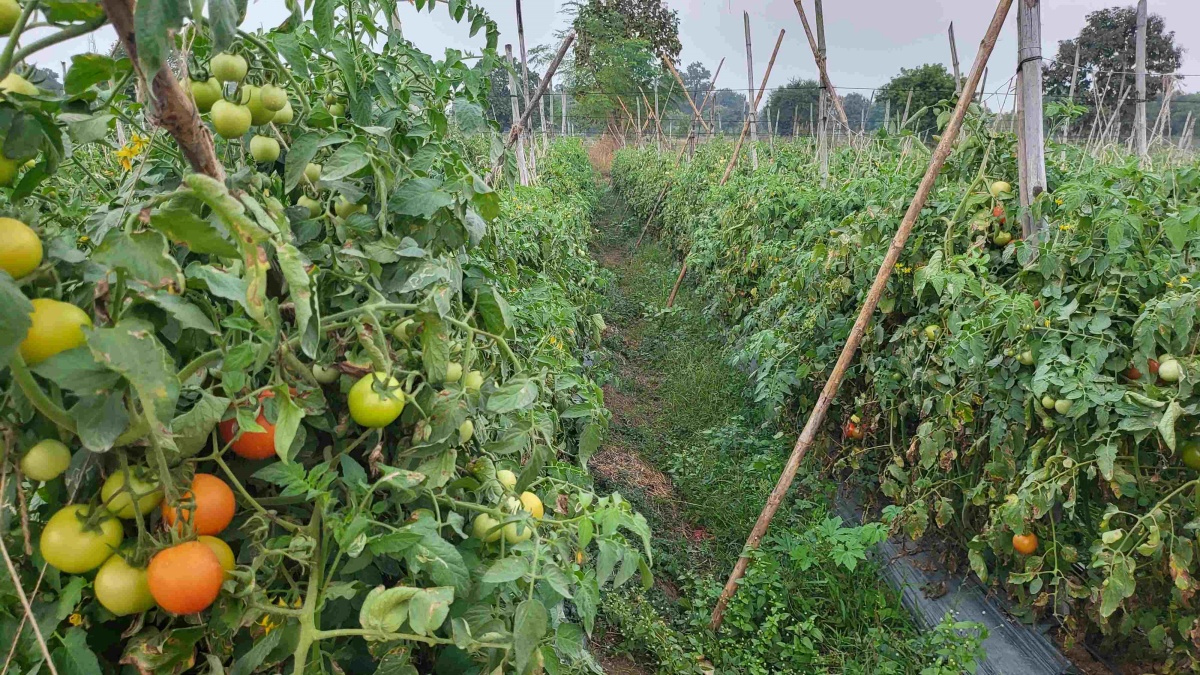
The FPO focuses on cultivating tomatoes, kalara (bitter gourd), and green chilies across 350 acres of land. Farmers receive agricultural inputs, technical training, and access to marketing linkages. Krushnachandra credits organizations like NABARD, Mahashakti Foundation, and the Horticulture Department for providing training and resources that have empowered local farmers to succeed.
The success of Golamunda’s farmers has drawn visitors from across India and abroad. Professors from Germany, Kenya, and Saudi Arabia have visited the region to learn about their innovative practices. Agricultural students regularly tour Krushna’s fields to understand his methods, which combine traditional knowledge with modern technology.
Meanwhile, traders from neighboring states like Chhattisgarh and Andhra Pradesh arrive in Golamunda to purchase organic produce directly from the farms. This direct marketing approach ensures better profits for farmers while meeting the growing demand for organic vegetables.
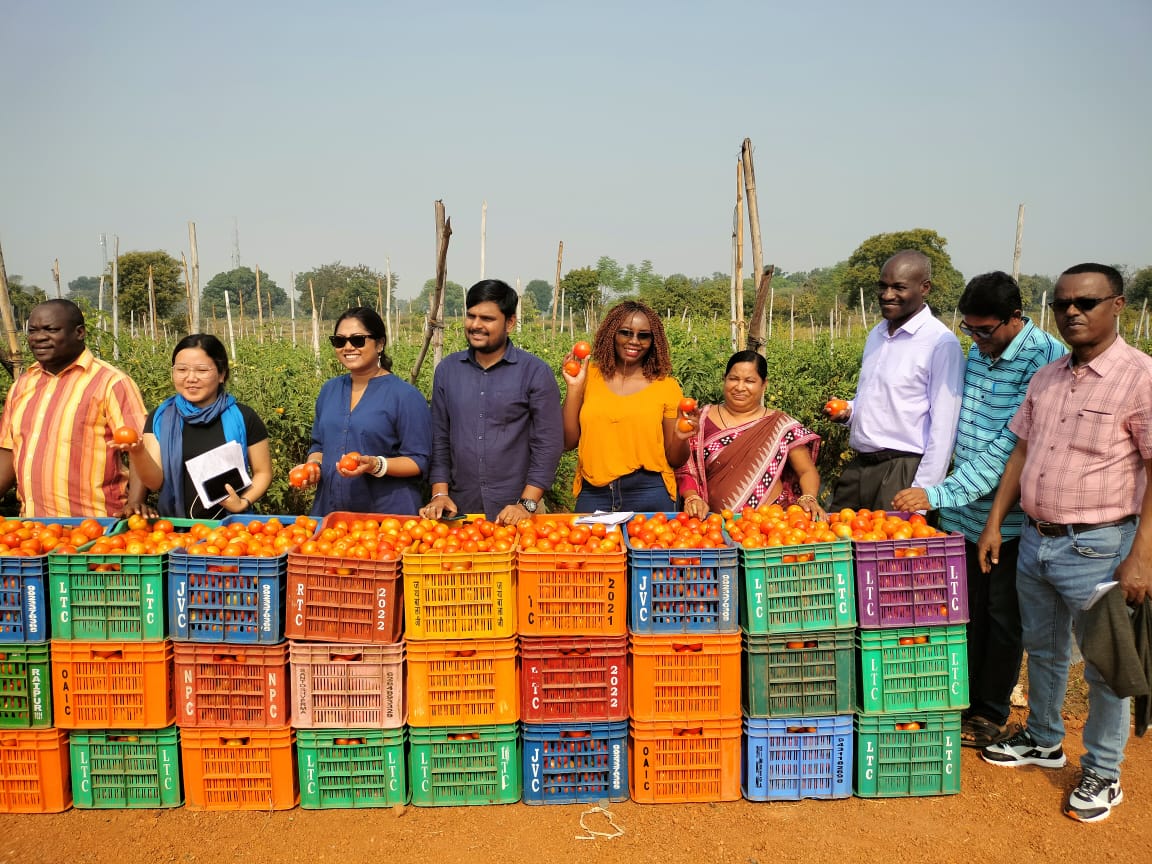
Golamunda’s transformation is particularly remarkable given its history as a migration hotspot. For years, locals were forced to leave their villages in search of work, enduring harsh conditions and unstable incomes. Krushnachandra’s efforts have not only stemmed this tide but have also created jobs for over 200 people in the area.
“Many people in our region used to migrate for work, but now they can find employment here itself,” Krushnachandra says beaming with pride.
Currently, tomatoes are cultivated in more than 200 acres and bitter gourd in more than 150 acres of land which is mostly done by small and marginal farmers. Financial support comes with the help of NABARD. The FPO works in Kegaon, Nuagaon, Khaliapalli, Chapriya, Mahaling, Dhamanpur, Sinapali and Khura panchayats.
Krushnachandra and his FPO are now exploring ways to further scale their operations, including introducing new crops and expanding marketing networks. They also plan to enhance storage and transportation facilities to ensure year-round supply to distant markets.
Farmers associated with the FPO benefit from:
• Access to Inputs: Seeds, fertilizers, and other resources are provided at subsidized rates.
• Technical Support: Training programs and workshops are conducted in collaboration with NABARD, Mahashakti Foundation, and the Horticulture Department.
• Marketing Linkages: The FPO facilitates direct sales to traders from neighboring states, ensuring better profits for farmers.
• Financial Empowerment: Farmers can become shareholders by investing just Rs 100, allowing them to access government-matched equity and other benefits.
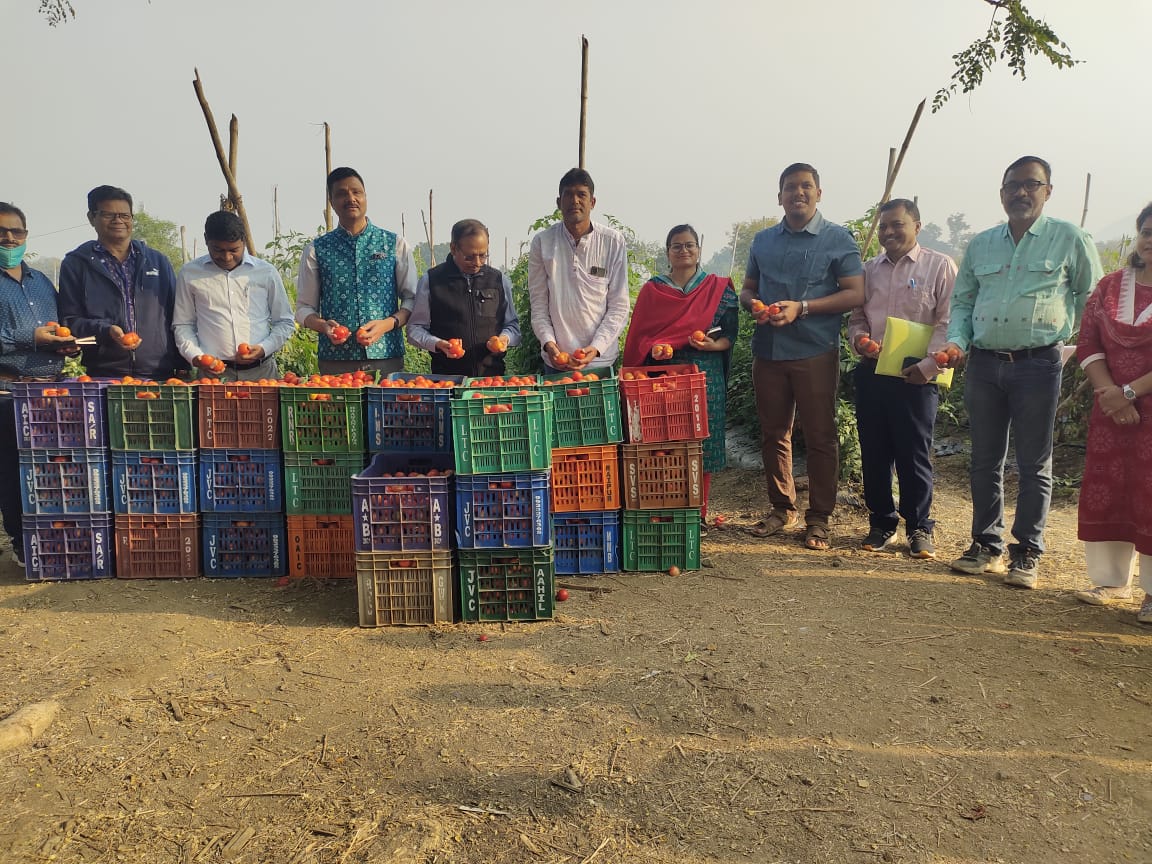
As Golamunda’s story continues to inspire, Krushnachandra remains committed to his vision of self-reliance through farming. “I never imagined that farming could bring such change, not just for me but for so many others,” he reflects.
Today, Golamunda stands as a shining example of how agriculture, when paired with innovation and community spirit, can pave the way for sustainable prosperity.
Read More
- Love's Labour: Tribal Women Blossom into Entrepreneurs with Dragon Fruit Farming
- From Sleeping On Apple Boxes To Becoming Millionaire: Bihar's 'Mushroom Man' Scripts Success Story
- Engineer-turned-farmer from Chhattisgarh transforms village agriculture, achieves Rs 2 crore annual turnover
- Bundelkhand farmer's success story of digging well gets further boost after cricketer VVS Laxman's tweet
